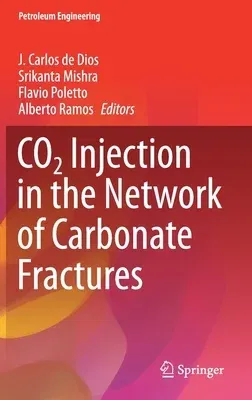This book presents guidelines for the design, operation and monitoring
of CO2 injection in fractured carbonates, with low permeability in the
rock matrix, for geological storage in permanent trapping.
CO2 migration is dominated by fractures in formations where the
hydrodynamic and geochemical effects induced by the injection play a key
role influencing the reservoir behavior. CO2 injection in these rocks
shows specific characteristics that are different to injection in porous
media, as the results from several research studies worldwide reveal.
All aspects of a project of this type are discussed in this text, from
the drilling to the injection, as well as support works like well
logging, laboratory and field tests, modeling, and risk assessment.
Examples are provided, lesson learned is detailed, and conclusions are
drawn.
This work is derived from the experience of international research teams
and particularly from that gained during the design, construction and
operation of Hontomín Technology Development Plant. Hontomín research
pilot is currently the only active onshore injection site in the
European Union, operated by Fundación Ciudad de la Energía-CIUDEN F.S.P.
and recognized by the European Parliament as a key test facility.
The authors provide guidelines and tools to enable readers to find
solutions to their problems. The book covers activities relevant to a
wide range of practitioners involved in reservoir exploration, modeling,
site operation and monitoring. Fluid injection in fractured media shows
specific features that are different than injection in porous media,
influencing the reservoir behavior and defining conditions for safe and
efficient operation. Therefore, this book is also useful to
professionals working on oil & gas, hydrogeology and geothermal
projects, and in general for those whose work is related to activities
using fluid injection in the ground.

